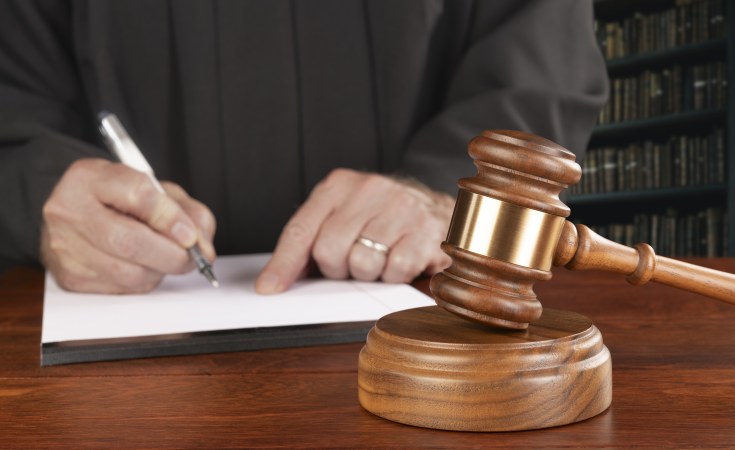For years, during the litigation in the United Kingdom, the Nigerian government and its lawyers accused Mr Shasore of not pursuing the government's case diligently.
The Royal Court of Justice in London, United Kingdom (UK) on Monday said Nigeria wrongly tagged a former Lagos State Commissioner of Justice, Olasupo Shasore, as a corrupt official in the arbitration between the government and the Process & Industrial Development Limited (P&ID).
For years, during the litigation in the United Kingdom, the Nigerian government and its lawyers accused Mr Shasore of not pursuing the government's case diligently and constantly pushing for a settlement.
The government accused him of accepting bribes from the P&ID to compromise Nigeria's stance. He was also accused of being in the know about the leaking of Nigeria's Internal Legal Documents to P&ID, which helped them monitor Nigeria's moves during the arbitration.
These ultimately presented him as a counsel who worked against his country and client in the arbitration that almost cost Nigeria about half its 2023 budget.
Mr Shasore was eventually charged before a Nigerian court by the Nigerian government.
'Not shown to be corrupt' - Court
But the British court said Mr Shasore, a Senior Advocate of Nigeria (SAN), has not been shown to be corrupt, clearing him of the infamous tag, he had endured for years.
Delivering the judgement that saved Nigeria from an $11 billion payment to P&ID, Robin Knowles, the High Court judge, said Mr Shasore's action through the arbitration did not show that he was corrupt or compromised. Instead, it showed he worked in favour of Nigeria, the judge said.
PREMIUM TIMES reported that the court also indicted P&ID for improper retention of Nigeria's Internal Legal Documents.
"Mr Shasore SAN has not, in my judgement, been shown to be corrupt. His actions are inconsistent with Nigeria's theory that he was," the judge said, enumerating reasons why.
He said Mr Shasore's advice to Nigeria to investigate, allow expert evidence to be obtained, and proceed in a timely fashion, "was sound and constant".
"He (Mr Shasore) assisted Nigeria to succeed in its applications to the Nigerian Court. Third, his participation in the various settlement discussions helped reduce the figures," Mr Knowles said.
He added that a review of the transcript of the hearing on liability revealed that he repeatedly challenged P&ID at the tribunal, noting "it is impossible to read pages 55-59 and 68-71 of that transcript as other than properly attempting through argument to secure an outcome in favour of Nigeria."
The judge, however, blamed Nigerian officials whom he said Mr Shasore pressed repeatedly.
He said: "The account given in this judgment shows that responsibility for failures to obtain evidence and to avoid delay lay rather with many ministers and officials, whom Mr Shasore SAN and others (including Stephenson Harwood and Mr Cordara QC at one stage) pressed repeatedly."
The judge went further to note that Nigeria, specifically the former Attorney General, Abubakar Malami, also a SAN, did not believe Mr Shasore SAN was corrupt.
If he did, he wouldn't have in the following years engaged Mr Shasore to represent Nigeria in another arbitration, the judge said.
The court also said Nigeria does not have enough evidence to substantiate its allegations that alongside Mr Shasore, its other lawyers worked against their client (Nigeria).
The other lawyers include Ibrahim Dikko, then legal director at the Ministry of Petroleum Resources; Hafsat Belgore, assistant legal adviser at the Ministry; Folakemi Adelore, director of Legal Services at the NNPC; and Ikechukwu Oguine, coordinator of Legal Services and Secretary to the NNPC.
"...there was insufficient evidence at this trial that they were bribed by P&ID. The evidence shows nothing in the conduct by Ms Adelore and Mr Oguine of Nigeria's case that casts doubt on the level or honesty of their efforts whilst Director of Legal Services to the Ministry and General Counsel to NNPC," Mr Knowles said.
Back story
In 2012, P&ID accused Nigeria of failing to fulfil its end of the bargain of the Gas Supply Purchasing Agreement (GSPA) contract it entered with the company in 2010.
According to the agreement that was later shown to be controversial, P&ID was to build and operate an Accelerated Gas Development project at Adiabo in the Odukpani Local Government Area of Cross River State while the Nigerian government sources natural gas from oil mining leases (OMLs) 123 and 67 operated by Addax Petroleum and supply to P&ID to refine into fuel suitable for power generation in the country.
However, P&ID alleged that the Nigerian government reneged on its obligation after negotiations were opened with the Cross River State government for the allocation of land for the project, leading to an arbitration that would last more than a decade.
In 2014, Nigeria's former Attorney General, Mohammed Adoke, contracted Mr Shasore as the leading counsel to represent Nigeria in the arbitration between the country and P&ID, which was still in its early stages. Mr Shasore was paid $2 million for the first and second stages of the arbitration.
In 2017, P&ID won the case and a tribunal ordered Nigeria to pay $6.6 billion to P&ID with an interest that had accumulated to over $11 billion before the latest verdict.
But the government accused Mr Shasore and other lawyers on its team of colluding with P&ID to sabotage the arbitration.
Last year, the EFCC sued him on accusations of money laundering by paying $100,000 cash to Ms Adelore through Auwalu Habu and Wole Aboderin. He pleaded not guilty to the charges and in October last year was granted bail by the Federal High Court in Lagos.
It is not clear if the EFCC will still proceed with the trial in the aftermath of the British court ruling.
Qosim Suleiman is a reporter at Premium Times in partnership with Report for the World, which matches local newsrooms with talented emerging journalists to report on under-covered issues around the globe


